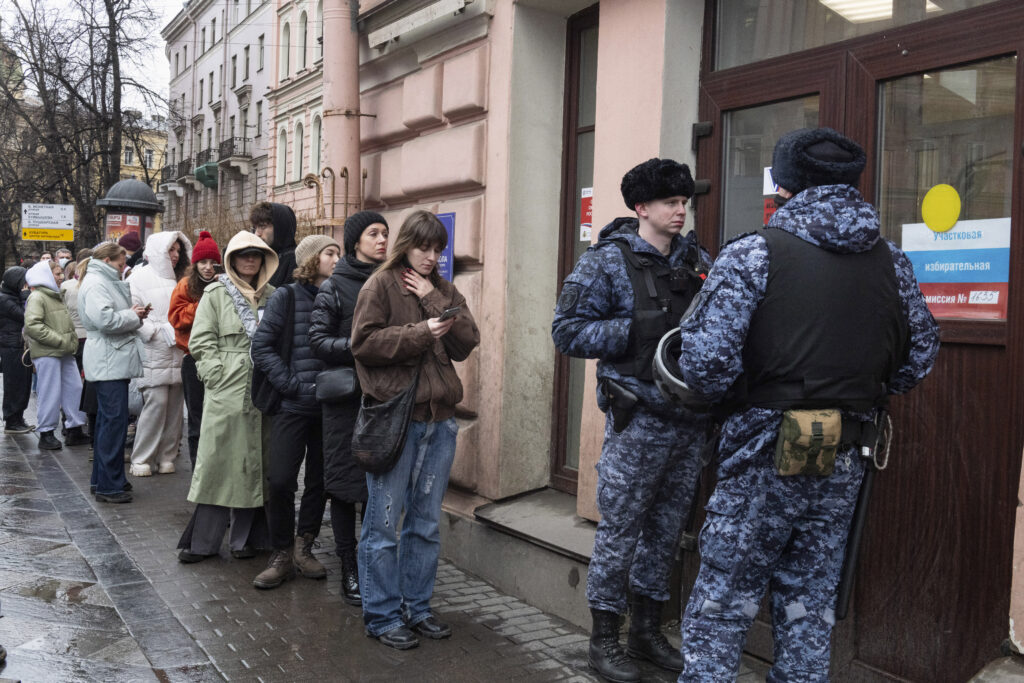Former Russian dissident leader Alexei Navalny‘s supporters showed up at polling stations at noon, his final coordinated act of protest.
Shortly before his death, Navalny endorsed a protest called “Noon Against Putin,” where supporters would simultaneously show up at polling stations at noon to subtly express their opposition to the Kremlin. The demonstration occurred on the last day of voting in the Russian presidential election, considered by many to be a rubber stamp procedure to extend Russian President Vladimir Putin‘s rule.

Demonstrators weren’t told who to vote for, just to not vote for Putin. The candidate who consistently comes in second is the Communist Party candidate, which itself is an ally of Putin. There are no Western-style liberal candidates on the ballot.
Sizable lines at polling stations were spotted in multiple locations, including Moscow and St. Petersburg. The exact number of participants in the protest is unclear.
The Moscow Prosecutor’s Office was aware of the plan well beforehand and threatened participants with arrest.
“Please note that neither the public mass events in question nor their locations have been approved by city authorities as required by law,” a statement from the prosecutor’s office, obtained by election watchdog Golos, read. “Organizing and participating in these mass events are therefore punishable in accordance with the current legislation of the Russian Federation.”
If arrested, offenders could face up to five years in prison.
Dozens of potential participants went on to be arrested at the demonstration across 17 cities, with the highest numbers of detentions occurring in Kazan, where at least 29 were arrested, and Moscow, where at least 19 were arrested, according to OVD Info, an organization that monitors human rights
CLICK HERE TO READ MORE FROM THE WASHINGTON EXAMINER
Opposition figure Maxim Reznik, who helped orchestrate the strategy, compared the strategy to Russian resistance to French Emperor Napoleon Bonaparte’s 1812 invasion.
“We can’t change it right now, but we have to put up a fight. This is our Borodino,” he said, referring to the famous 1812 battle outside Moscow, which crippled the Grand Armee’s invasion. “Yes, Napoleon will win — but something will change.”

